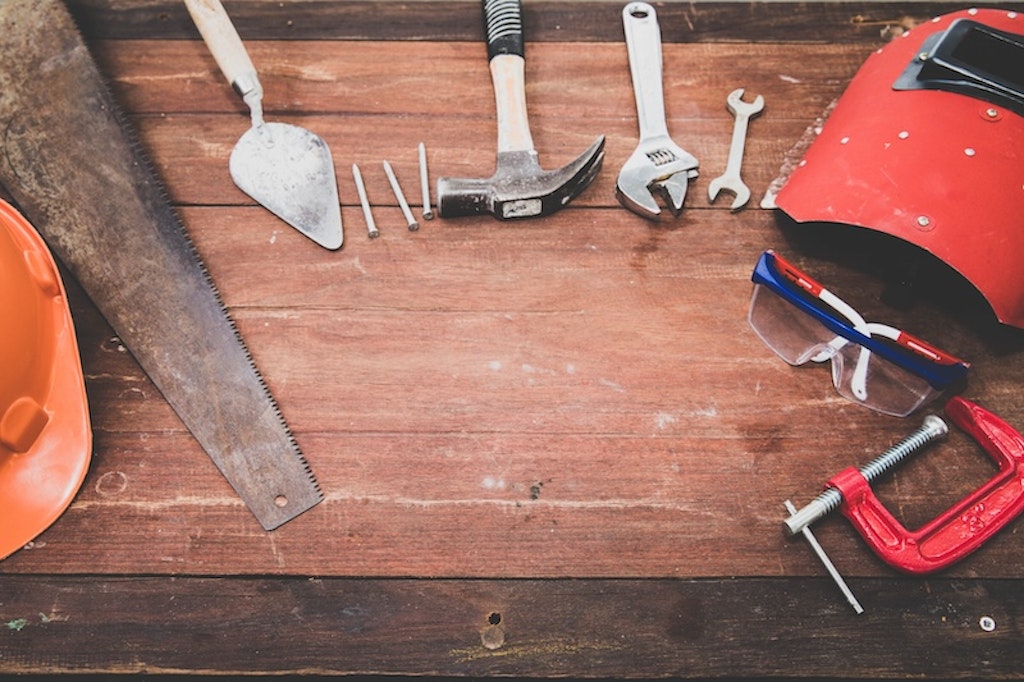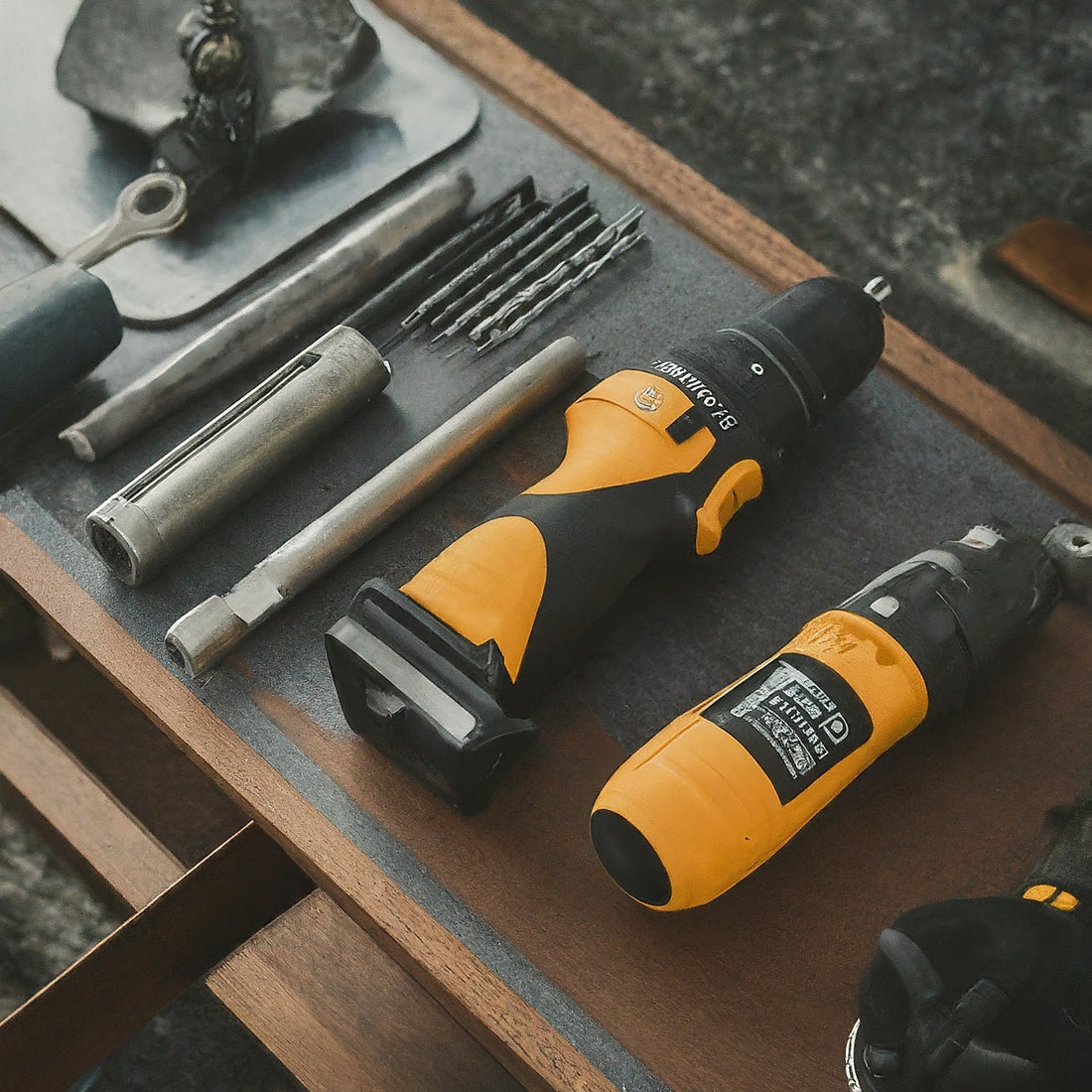As an Amazon Associate, I earn from qualifying purchases.
Gardening can be a fulfilling hobby. Hand tools and power tools both have their place.
Many gardeners prefer hand tools over power tools for various reasons. Hand tools provide better control and precision for delicate tasks. They are also quieter, reducing noise pollution. Additionally, hand tools are often more affordable and easier to maintain. Using hand tools can offer a more connected experience with the garden.
This blog will explore the many benefits of using hand tools in gardening and help you understand why they might be the better choice for your garden projects.
Environmental Impact
Gardening is a rewarding hobby that allows you to connect with nature. Choosing hand tools over power tools can have a significant environmental impact, but this decision can benefit both the planet and your garden. Let’s explore how using hand tools can help reduce your environmental footprint.
Reducing Carbon Footprint
Using hand tools means less reliance on electricity or fuel. This leads to a reduction in carbon emissions. On the other hand, power tools often run on gasoline or electricity. These sources of energy contribute to greenhouse gas emissions. By choosing hand tools, you can make a small but significant difference.
Hand tools are also made with fewer complex parts, which means fewer resources are used during manufacturing. Over time, this results in a lower carbon footprint for gardening activities.
Minimizing Energy Consumption
Power tools require a constant supply of energy to operate. This increases your overall energy consumption. Hand tools rely on human power, which is renewable and free. You don’t have to worry about charging batteries or running out of fuel.
Additionally, using hand tools can help you save on energy bills. By reducing your dependency on electricity or gasoline, you can lower your household’s energy use. This is not only good for the planet but also for your wallet.
| Hand Tools | Power Tools |
|---|---|
| Lower carbon emissions | Higher carbon emissions |
| No electricity or fuel needed | Requires electricity or fuel |
| Human-powered | Machine-powered |
| Lower energy consumption | Higher energy consumption |
Cost-effectiveness
Gardening can be a rewarding hobby, but it can also be expensive. Using hand tools instead of power tools can save you money. Here are some reasons why hand tools are more cost-effective for gardening.
Lower Initial Investment
Hand tools have a lower initial cost than power tools. You don’t need to spend a lot to start gardening. Basic hand tools like trowels, pruners, and hoes are affordable. You can find them at most garden stores or online.
- Trowel: $10 – $20
- Pruner: $15 – $30
- Hoe: $20 – $40
Power tools, on the other hand, can be quite expensive. For example, a good quality electric lawnmower can cost over $200. This makes hand tools a better choice for gardeners on a budget.
Reduced Maintenance Costs
Hand tools require less maintenance. This means you spend less money over time. Power tools need regular servicing, which can be costly. Hand tools only need basic care, like cleaning and occasional sharpening.
Here is a comparison table:
| Tool Type | Initial Cost | Maintenance Cost |
|---|---|---|
| Hand Tools | Low | Very Low |
| Power Tools | High | Moderate to High |
By choosing hand tools, you avoid extra costs. This makes gardening more affordable. You can enjoy your hobby without breaking the bank.
Health Benefits
Gardening with hand tools has many health benefits. Using hand tools promotes physical exercise and mental well-being. Let’s explore how these benefits can enhance your gardening experience.
Physical Exercise
Hand tools require more effort than power tools. This extra effort translates into a good workout. Digging, planting, and weeding involve various muscle groups. Your arms, legs, and core get a proper exercise. Gardening with hand tools can also improve your stamina over time. You burn more calories, which can aid in weight management. Regular physical activity through gardening keeps you fit and healthy.
Mental Well-being
Gardening with hand tools also benefits your mind. The repetitive nature of using hand tools can be meditative. It helps you focus and stay present. Gardening reduces stress and anxiety levels. Working with plants and soil has a calming effect. This can boost your mood and overall mental health. Engaging in outdoor activities also exposes you to sunlight. Sunlight increases your body’s vitamin D levels, which is good for mental health. Thus, using hand tools for gardening can improve your mental well-being significantly.

Precision And Control
Using hand tools for gardening offers unparalleled precision and control. Unlike power tools, hand tools allow gardeners to fine-tune their techniques and care for delicate plants easily.
Fine-tuning Techniques
Hand tools give you the ability to make precise cuts and adjustments. With power tools, it’s easy to make mistakes that can damage plants. Hand tools like pruning shears and trowels are perfect for detailed work.
A hand trowel lets you plant seeds at the exact depth needed, and pruning shears allow you to cut only the parts of the plant you want. This level of detail is hard to achieve with power tools.
Here’s a table comparing the fine-tuning capabilities of hand tools versus power tools:
| Hand Tools | Power Tools |
|---|---|
| Precise control | Less precision |
| Detailed work | Broad cuts |
| Lower risk of plant damage | Higher risk of errors |
Delicate Plant Care
Hand tools are better for delicate plant care. They are gentle on young plants and seedlings. A hand fork can loosen soil without harming roots, and a small hand rake can clear debris without disturbing the plants.
Hand tools also offer a more intimate gardening experience. They allow you to feel the soil and plants, giving you a better understanding of their needs. This connection helps you care for your garden more effectively.
Consider these benefits of using hand tools for delicate plant care:
- Gentle on plants
- Less soil disturbance
- Better control over gardening tasks
In conclusion, hand tools provide the precision and control needed for fine-tuning techniques and delicate plant care.
Noise Reduction
Hand tools offer many benefits in gardening, especially in noise reduction. They create a peaceful environment, making gardening more enjoyable. This is a significant advantage over power tools, which can be loud and disruptive.
Quieter Gardening Experience
Hand tools operate silently. This allows you to garden early in the morning or late at night without disturbing neighbours. Power tools create loud noises, which can be stressful. Using hand tools, you can enjoy the sounds of nature—birds chirping, leaves rustling, and water flowing. It makes gardening a more serene experience.
Less Disturbance To Wildlife
Wildlife is sensitive to noise. Power tools can scare animals away. Hand tools are much quieter. They let you garden without disturbing birds, squirrels, and other creatures. This helps maintain a healthy ecosystem in your garden. Animals can go about their activities undisturbed. Your garden remains a peaceful habitat for wildlife.

Safety Concerns
Gardening is a relaxing hobby. Using the right tools is vital. Choosing hand tools over power tools can significantly reduce safety risks. Let’s explore why hand tools are safer.
Fewer Accidents
Hand tools require manual effort, which gives you more control. This control means fewer chances of slips and mishaps. Power tools move quickly and can be unpredictable. They can cause severe injuries if not handled properly.
Hand tools, like pruners and trowels, are easy to manage. They don’t have spinning blades or high speeds. This simplicity leads to fewer accidents. Your focus stays on the task, not on controlling a powerful machine.
| Hand Tools | Power Tools |
|---|---|
| More control | Less control |
| Slower movements | Faster movements |
| Fewer injuries | More injuries |
No Electrical Hazards
Hand tools don’t need electricity. This removes the risk of electrical shocks. Power tools with cords can be dangerous. A damaged cord can cause a shock. Water and electricity don’t mix well. Gardening often involves water. This makes electrical hazards more likely.
Battery-powered tools can also pose risks. Batteries can overheat or catch fire. Hand tools avoid these dangers. They are safe in wet conditions and around water features. No need to worry about electrical malfunctions.
Choosing hand tools keeps your gardening experience safe and stress-free.
Longevity And Durability
Gardening with hand tools has several advantages. One of the most significant benefits is their longevity and durability. Unlike power tools, hand tools can last for many years with minimal maintenance. This makes them a smart investment for any gardener.
Long-lasting Tools
Hand tools are known for their long-lasting nature. They are often made from high-quality materials. This ensures they can withstand regular use. For example, a well-made hand trowel or pruner can last decades. This is because they have fewer parts that can break or wear out.
In contrast, power tools often have motors and batteries that degrade over time, leading to frequent replacements or repairs. Hand tools, on the other hand, require simple upkeep. Keeping them clean and occasionally sharpening blades is usually enough, making them a cost-effective choice for many gardeners.
Sustainable Materials
Hand tools are often crafted from sustainable materials. These materials are not only durable but also environmentally friendly. Many hand tools feature wooden handles. Wood is a renewable resource. Metal parts are often made from stainless steel or iron. These metals are long-lasting and can be recycled.
Using hand tools supports sustainability. It reduces reliance on plastic and disposable products. This is important for gardeners who care about the environment. They can garden effectively while minimizing their ecological footprint.

Community And Tradition
Gardening with hand tools brings communities together and preserves traditions. These simple tools offer a sense of connection to nature and helps keep the gardening heritage alive for future generations.
Connecting With Nature
Hand tools help gardeners feel the soil and plants. This tactile experience can be very rewarding. Touching the earth and plants strengthens our bond with nature. It makes us more aware of the environment around us. This connection can improve mental health and overall well-being.
Preserving Gardening Heritage
Hand tools have been used for centuries. They are part of our history. By using them, we honour the methods of our ancestors. This practice keeps old gardening techniques alive and ensures they are not forgotten. Passing these skills to younger generations keeps our gardening heritage intact.
Frequently Asked Questions
What Are The Benefits Of Hand Tools In Gardening?
Hand tools are quieter and more eco-friendly. They also provide better control and precision.
Are Hand Tools Safer Than Power Tools?
Yes, hand tools reduce the risk of injury. They are easier to handle and manage.
Do Hand Tools Require Less Maintenance?
Yes, hand tools need minimal maintenance. They have fewer parts that can break or need repair.
Can Hand Tools Be Used By Beginners?
Absolutely, hand tools are simple to use. They are perfect for beginners and small projects.
Are Hand Tools More Affordable Than Power Tools?
Yes, hand tools are generally cheaper. They are a cost-effective choice for gardeners.
Conclusion
Hand tools offer many benefits for gardening. They are quieter and more affordable. Hand tools also provide better control and precision. They help you connect with nature and improve your physical fitness. Power tools may be faster, but hand tools bring joy and satisfaction.
Use them to create a peaceful and rewarding gardening experience. So, next time you garden, consider choosing hand tools. Enjoy the simple pleasures they bring. Happy gardening!
